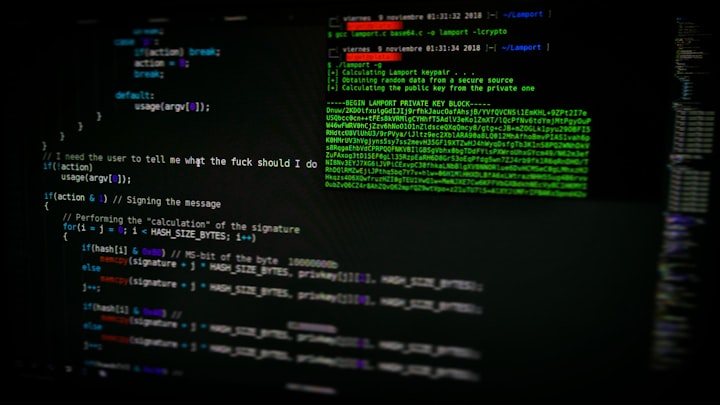
It’s hard to meet new friends, and it’s even harder to find remotely acceptable dates in our modern urban jungles. To avoid that feeling of gazing into the candy store from a cold, wet pavement outside in the rain, most of us have turned to dating apps as being pretty much the best - if not only - link to a more satisfying social life.
If you’ve taken the time to set up a half-decent profile, you should, theoretically, get the opportunity to sit down with a glass of wine for a proper swiping session. Face it: the act of flipping through prospects, swiping left or right, seldom fails to deliver a little thrill of empowerment.
But what are we trading for this small pleasure?
BIGGER IS SAFER, AND OTHER HALF-TRUTHS
It’s easy to believe that bigger apps have better safeguards. We assume that a popular dating app has earned its reputation because it delivers pros without the cons. Surely, we think, if there was anything ‘off’ about it one of the other millions of users would have noticed and spoken up?
Not so.
Phone app stores overflow with apps, especially dating apps, that have built-in snooping and data harvesting abilities. Developers build mobile apps on demand – and the demand is for collecting as much information about users as they can. Popular apps may be better protected against random mobile phone hacking, but their snooping functions are often more intrusive.
Dating apps have been used to expose and compromise the intimate habits and preferences of millions of dating app users around the world. It almost doesn’t bear thinking about, but every time you use a phone app - any app - potentially thousands of companies will receive the results of your every phone click and swipe. That information gets sold, again and again, spreading the damage further every time a new marketing company buys the information from the data broker who collected it firsthand. They use that information ruthlessly to sell their products and services right back to you.
HOW TO STOP DATA HARVESTING FROM YOUR PHONE APPS
The bad news is that you can’t stop it. You can limit the damage somewhat if you are willing to accept a few basic rules.
1 Avoid phone apps – use a computer
Dating is (mostly) fun, but dating apps are much more intrusive than they appear. You’re giving away a serious chunk of your privacy when you use it on your mobile. It’s much easier to obscure your browsing habits on a laptop or desktop than when you use a mobile phone app with its inevitable built-in sleuthing abilities. Use Firefox, a privacy-orientated browser with built-in tracker blocking, ad-blockers, privacy containers, and even VPN.
2 Dishonorable Mention - Stalkerware
Mobile stalkerware and spyware are becoming a massive threat. It can be delivered to your phone unnoticed if you click on unsafe links, or, lately, even WhatsApp pictures or GIFS. In fact, you’ll even find some of these unsavory apps in the official Playstore, where they are marketed as parental control tools or employee productivity monitoring tools.
These apps can steal your contact details, videos, documents, emails, and even text messages, as well as log your call history and keystrokes. They can broadcast your GPS locations, intercept live chats, and monitor or even block internet browsing. Some can even record your phone calls, intercept your activities on Skype, Facebook, WhatsApp, and most other social media, and can even activate your device’s camera and microphone without you knowing it.
3 Check Mobile App Permission Requests.
If a shopping app demands access to your files, documents, contacts, and photos you should steer clear of it. Why would a ride-hailing app need unrestricted access to your camera or microphone? Did you grant access to your confidential business reports to Facebook or your dating app without realizing it?
Marketers often rely on the fact that users seldom get round to removing unused apps. Some of these apps will continue to harvest your private information. Investigate each one to see what you have been sharing. Clean up, remove unused apps, and install only necessary apps. If you truly need an app with embedded intrusive functionality, join a worldwide protest, and log your concerns with the business.
4 Compartmentalize Your Life
Never use your Facebook or Google Account details for auto-login when you use apps, online services, and websites. There’s no need to broadcast a seamless, 100% complete profile of your daily activities, habits, and preferences. Split it up: use different email addresses to access different services, use different browsers for certain services, and provide just a bare minimum of personal information when you create a services profile. Keep track of your accounts with a secure, not-free password manager, because free password managers are often data harvesters in disguise.
5 Turn Off Geolocation
Your dating app will almost certainly request access to your geolocation data. It’s better to turn off geolocation access on both your phone and computer by default. You can allow permission on a case-by-case basis when you do online shopping or search for local products or services.
6 Use Messaging Apps With End-to-end Encryption
Did you finally meet someone you like? It’s a good idea to initially stick to your dating app’s platform-built messaging system. It’s safer, as you’ll have a record of your conversations in case something goes badly wrong. Some dating services advertise encrypted chat, but don’t be lulled into a false feeling of safety. Messages that are encrypted in transit get decrypted at the messaging provider’s end and stored on their servers.
Servers get hacked. Often. Your conversations may one day become public knowledge, so don’t turn up the heat on an unencrypted messaging app. Use an app with end-to-end encryption for adult conversations to avoid third-party snooping. Signal is the gold standard for chats that should remain private.
7 Keep Track Of Your Digital Exposure
Harvested and stolen information, including data exposed in hacks, always find their way into the wild. Do a digital profile check at least twice a year. The quickest option is to use a data aggregator service with the ability to flesh out your ‘hard’ public information (name, location, property, and criminal records) with details from your social media accounts and other dark internet corners. Nuwber’s deep profiles can help you spot information that may have been released by hackers or is the result of data theft by phone malware.
8 Insist On Data Privacy
Don’t accept digital snooping as just another aspect of digital life. Marketers, including the likes of Google and Facebook, vehemently protest that they have your interests at heart, yet they actively harvest your data without your permission or knowledge.
That sounds a little like theft, but hey, what do we singletons know!





Comments
There are no comments for this story
Be the first to respond and start the conversation.